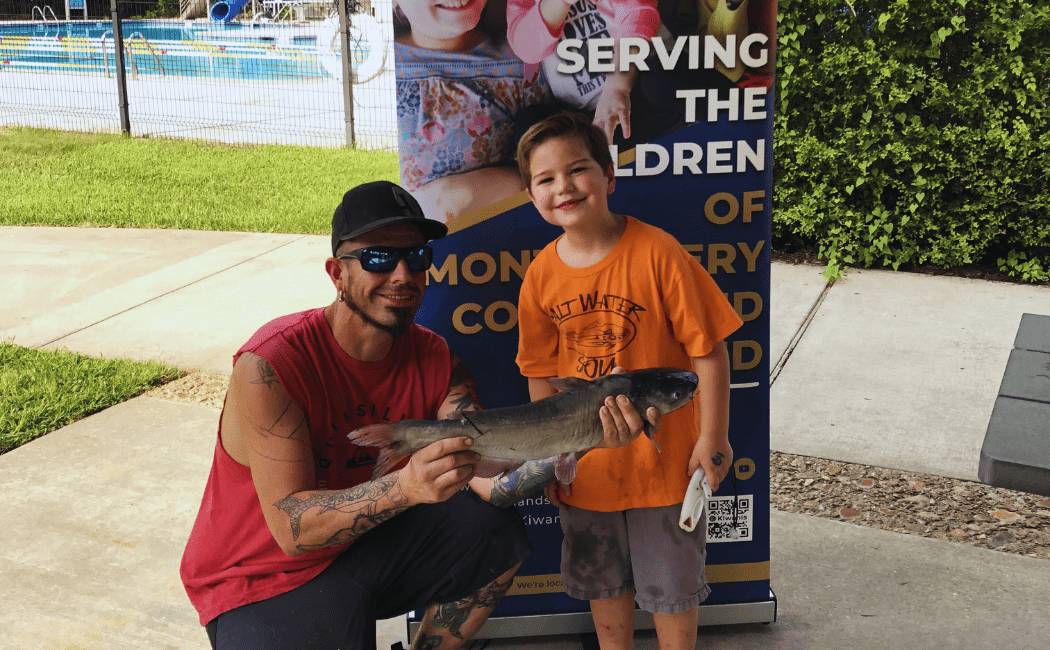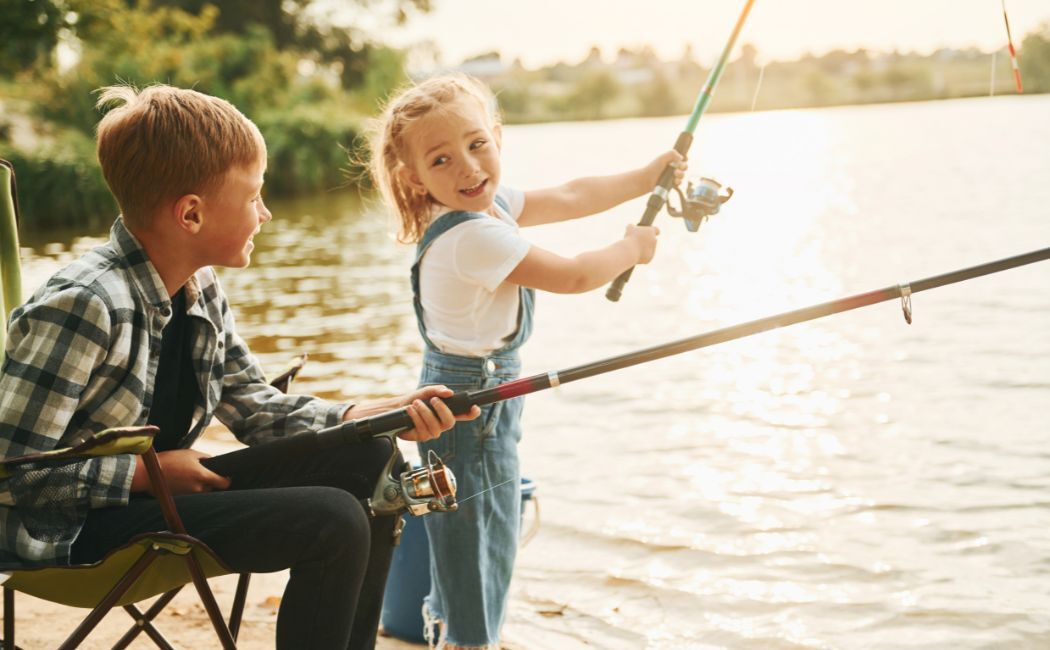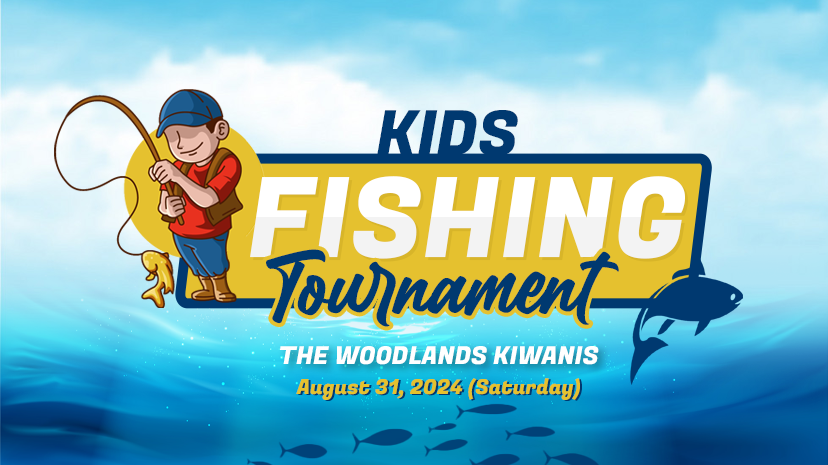
Reeling in Life Lessons: How Fishing Can Teach Children Valuable Skills and Values
Fishing is a fun and rewarding activity that can teach children invaluable life skills. Teaching kids how to fish develops values such as patience, understanding, and responsibility. It also teaches practical skills such as problem-solving, research, and decision-making. Together, these skills can help them make informed decisions in other aspects of their lives.
Patience is an essential value for anyone to have, both in fishing and day-to-day life. These days, everything is fast-paced, even for kids. They are used to having their gadgets on them, with games or videos available with a touch of a button. With fishing, the reward (or sometimes none at all) arrive later.

Learning the basics of fishing requires time and dedication; teaching children this skill is a great way to instill the importance of patience early on. When you’re out on the water with a kid that has never fished before, it will likely take some time until they catch their first fish. Waiting for a bite and not giving up is a great way to instill patience in the heart of a young angler.
The delayed gratification they get from fishing teaches them that life’s greatest rewards are not instantly given. This applies to other situations they may encounter later on. They get to learn self-control, perseverance, and even social competence. It encourages them to work hard and be patient for the rewards of their efforts.
Along with patience, fishing teaches kids about understanding. Understanding why things are done certain ways and how different elements interact with one another is an important part of fishing: “What’s the best bait?”“Where can you find the most fish?”Not only do they learn the basics of fishing, such as tying knots, lures and bait, but they also gain an appreciation for nature and the environment. Through fishing, they learn about animal habitats and ecosystems, as well as important environmental stewardship practices. They learn about biology, environment, and other aspects of nature when they go out on the water—all knowledge that will be useful in different situations throughout life.
When they get to understand their surroundings, they’ll have a clearer picture of the world they live in. Bringing them outdoors provide them a perspective not just of the environment but also of themselves.
Fishing also develops an individual’s sense of responsibility. When kids participate in this activity, it becomes their own responsibility to keep themselves safe while fishing—and not only that, but to respect nature and the environment. By actively engaging with fishing, they gain an appreciation for the environment around them. Taking care of the pond or lake where they go fishing is part of their responsibility as anglers, and it’s important for kids to understand this early on.
For example, when preparing to fish, children must be aware of regulations such as size limits and catch limits in order to ensure the sustainability of the fishery. They also need to stay organized by gathering all necessary items before heading out on the water. In addition, they must understand how weather conditions affect their success rate and safety while on the water. All these important lessons help build responsible decision-making skills that will benefit them well beyond their time spent fishing.
In addition to these values, kids can learn various practical skills when they fish. Researching what kind of bait works best in a certain area, choosing the right spot to fish, and knowing how to bait the hook are all examples of problem-solving skills children can acquire through fishing.
The more time they spend out on the water, the better they will get at making informed decisions—things like which rod and reel combo is best for them or whether they should use a spinner or jig for bass fishing.
Kids must use their cognitive abilities to think through potential solutions. Additionally, when fishing with others, kids learn valuable interpersonal skills such as cooperation and communication. These are essential life-long tools they will carry with them outside of the world of fishing. As they work together to come up with ways to catch fish, they are also developing patience and resilience towards challenges – all key components of problem-solving.
Fishing also teaches children research skills. Through fishing, they can learn how to explore a variety of resources when searching for potential fish-holding spots or strategies for catching them. By scouting out areas such as shorelines and docks, they can observe the environment around them and use that knowledge to determine where to cast their line.
Additionally, researching the types of bait or lures that work best in their local area encourages kids to investigate what works and doesn’t work depending on the season and time of day. This provides valuable lessons in problem solving and critical thinking that will serve them well beyond just fishing! Furthermore, by reading fishing magazines or searching online forums, kids can gather more information about different methods from experienced anglers and have more success when they’re out on the water. As a result, fishing can be an effective way to teach kids important research skills that will set them up for future success.
Fishing encourages children to apply their knowledge in order to develop and refine their technique with each excursion. They can test out different baits or lures and observe how the fish are responding, adapting their approach as needed until they find what works best for them in a particular situation. This requires problem-solving skills as well as the ability to use trial-and-error logic, both of which are important traits for any successful researcher!
Fishing can also be a great way for children to learn how to make decisions. It can help kids learn to weigh the pros and cons of different scenarios and make decisions that will result in positive outcomes. The decision-making process begins with planning, as anglers must consider factors such as location, technique, bait, and other considerations when they set out for a fishing trip. Once on the water, fishers must also continually assess conditions and adjust their approach accordingly—for example, if the fish aren’t biting during one spot, it might be time to move elsewhere or try a different lure or technique. Through this process of trial and error, children can gain valuable problem-solving experience while having fun at the same time.
Teaching children important decision-making skills early in their lives can help them make sound decisions in the future. Fishing introduces them to this life skill. Through it, they are able to identify problems, choose different options, and come up with the needed solutions. With fishing, mental development becomes more enjoyable.
Teaching children fishing is an activity that not only provides hours of entertainment, but also helps in their development. Fishing encourages the use of problem solving and critical thinking skills as kids learn to navigate the environment around them. It also allows them to build confidence as they master a new skill and refine their technique for catching fish.
Fishing teaches patience, resilience and discipline as children need to remain focused in order to catch a fish. It also gives kids the opportunity to get outdoors and enjoy nature, helping them gain a better understanding of the natural world. Going out on the water is an educational experience that all kids should have access to. Not only will they benefit from it in the present moment but also in the future—in their daily lives and other activities as well. Fishing truly does teach valuable skills that will last a lifetime!
You can create these moments with your children with The Woodlands Kiwanis Kids Fishing Tournament. Teach the basics of fishing while they learn valuable life skills. Fun awaits!


